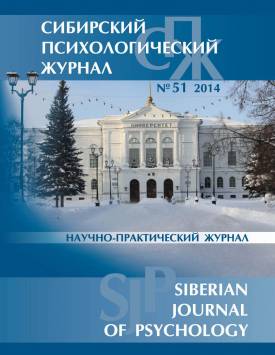Cognitive strategies innovators and entrepreneurs: the problem research
The paper raises the problem of the study of cognitive strategies on the example of "traditional" and "innovative" entrepreneurs. Entrepreneurship and innovation are analyzed as a form of proactive human behavior. Traditionally, they are studied from the viewpoint of social conditioning of these processes and their effectiveness and from the position of studying personality of humans capable to implement this form of activity. In the field of cognitive research the studying of consciousness and the cognitive strategies of the solution of problems is recognized the particularly relevant. It includes the study the flow of cognitive processes under conditions of uncertainty, risk, high-stress, cognitive complexity, lack of time and at the same high frequency business interruption, as well as for decision and choice. Such problems are often not structured and are cognitively complex. They are not clearly defined boundary between the known and the unknown (thereby causing the need for sensitivity to issues) and their orienting basis of action remains incomplete (ie, the solution is carried out in a situation of uncertainty and often risk). Consequently, the solution of such problems requires decisive strategic thinking skills and creativity, and the existence of special heuristic cognitive strategies. Based on the analysis of the problem field, it becomes obvious that the success of innovation and entrepreneurship is the result of development of special cognitive styles, cognitive strategies of successful problem solving tasks. We proved the lack of studies of this kind in modern psychological science in the paper. The following is an overview of the theoretical work on the problem of studying cognitive features of entrepreneurs and innovators case study of cognitive strategies and cognitive style "rigidity". The study revealed an ambiguous position which takes rigidity in the system of cognitive and personality characteristics of innovative and entrepreneurially - oriented subjects. On the one side, the main ability is considered to be an entrepreneur's ability to generate creative ideas, which would differ on demand, utility, and would lead to business success and prosperity. In this case, the rigidity becomes a quality limiting thinking, creativity of entrepreneurs, inhibiting their effectiveness. On the other side, the highly - successful and long running entrepreneurs are frequently characterized by severe rigidity. In addition, a fairly typical for them, according to a specific empirical research is a combination of rigidity with spontaneity, empathy, courage and radicalism, with individualistic and desire for creative solutions. Based on the analysis promising and the relevance of specific empirical studies on large samples of entrepreneurs and innovators is shown.
Keywords
когнитивные стратегии, инноваторы, предприниматели, ригидность, cognitive strategies, innovators, entrepreneurs, rigidityAuthors
| Name | Organization | |
| Smetanova Yulia V. | Tomsk State University | smetanova@mail.ru |
References

Cognitive strategies innovators and entrepreneurs: the problem research | Sibirskiy Psikhologicheskiy Zhurnal – Siberian Journal of Psychology. 2014. № 51.
